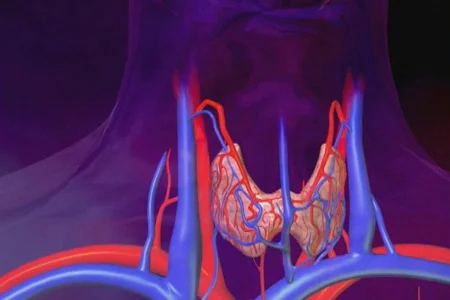Symptoms of a thyroid disorder
/wo common thyroid conditions include hypothyroidism and hyperthyroidism. Hypothyroidism is when a person has an underactive thyroid. This occurs when the thyroid gland does not produce enough of certain hormones. Hyperthyroidism is when a person has an overactive thyroid. This is a condition that occurs when the thyroid gland produces too much of the hormone thyroxine. There are a number of signs and symptoms that may be associated with either of these conditions.
Weight Gain or loss: One of the most common signs of a thyroid problem is an unexplained change in weight. Unexplained weight gain may indicate hypothyroidism, or low levels of thyroid hormones. On the other hand, unexplained weight loss could indicate hyperthyroidism, which is when the thyroid produces an excess amount of hormones than the body needs. Hypothyroidism is much more common than hyperthyroidism.
Swelling in the neck: A swelling or enlargement in the neck is an indicator that there is a thyroid problem. Both hypothyroidism and hyperthyroidism could cause a goiter. It is important to get this checked out because neck swelling could also mean more serious conditions such as thyroid cancer or nodules.
Increased or decreased heart rate: Thyroid hormones can affect how fast the heart beats. A person with hypothyroidism may have a slower than normal heart rate. A person with hyperthyroidism may have a faster than normal heart rate. Hyperthyroidism can also cause high blood pressure or heart palpitations.
Decrease in energy or mood: Having a thyroid problem can cause your mood and energy levels to fluctuate. Hypothyroidism may cause a person to feel fatigued, tired, slow, and even depressed. Hyperthyroidism may cause a person to feel more anxious, have difficulty sleeping, irritable, or restless.
Hair loss: A thyroid problem may cause a person to experience hair loss. Both hypothyroidism and hyperthyroidism can cause hair loss. However, with treatment, a person’s hair will usually grow back.
Uncomfortable changes in body temperature: Thyroid problems can interfere with the body’s ability to regulate its temperature. People with hypothyroidism may feel cold more often than usual. On the other hand, people with hyperthyroidism may feel warmer than usual and experience significant sweating.
Other symptoms of hypothyroidism may include dry skin, brittle nails, numbness or tingling in the hands, constipation, and abnormal menstrual periods. Other symptoms of hyperthyroidism may include muscle weakness or trembling hands, vision problems, diarrhea, and irregular menstrual periods.

